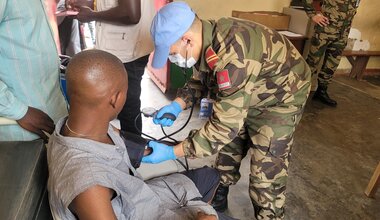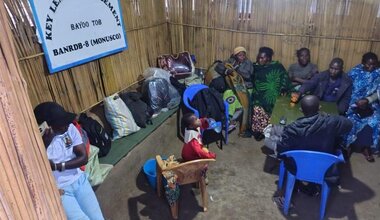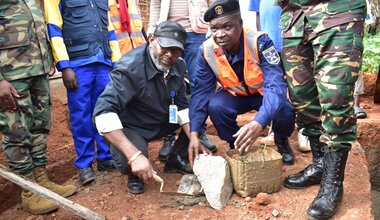LILIA BUDIYANTI: "Serving as a Peacekeeper is an Honor for Me and for my Country, Indonesia"
 |PORTRAIT|
|PORTRAIT|
The theme of the International Peacekeepers Day 2020 is "Women in Peacekeeping: A Key to Peace". This celebration is an opportunity to evoke the tremendous energy and enthusiasm shown by the female Blue Helmets personnel within the United Nations Mission for Stabilization in the Democratic Republic of Congo (MONUSCO).
Navy captain Lilia Budiyanti is one of those female peacekeepers. At the same time, she is in charge of Public Information and Head of the Engagement Team within the Indonesian Battalion based in Kalemie.
Alongside other troop-contributing countries, the Indonesian contingent has taken stock of women’s potential in the peacekeeping missions. When they took up service in November 2019 in Tanganyika province, the number of the Indonesian female personnel which stood at 23, is now 43 peacekeepers.
“We are members of the Task Force 39B Rapid Action Battalion from the Indonesian Armed Forces. We have the capacity required to carry out our duties in accordance with the United Nations’ mandate,” she said.
For captain Lilia, becoming a UN peacekeeper is an honor and it is also an honor to be able to serve the Indonesian nation under the United Nations flag.
"As female soldiers, we work directly with local communities in mission areas whose cultures are very different from that of Indonesia."
At various ranks, like their male counterparts, Indonesian female peacekeepers guard the camp. They participate in security assessment missions as well as in patrols. Some serve as military police in the contingent.
They are generally present in the implementation of civil-military programs (CIMIC) intended for proximity outreach actions. In this context, the living condition of the populations, more particularly, women’s and children’s health, constitute a major concern. Medical consultations, counseling and early awakening activities and games for children are their specialties and make them popular with communities.
In the context of the COVID pandemic, they conduct prevention campaigns with the populations.
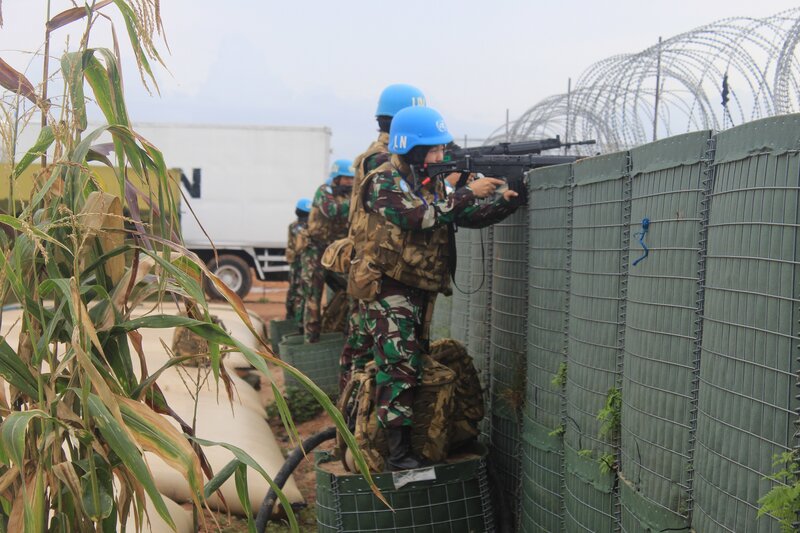
The Indonesian Peacekeepers work in close collaboration with female military observers (MILOBs) from different countries: Morocco, Benin, Ghana, Malawi, Bolivia, Pakistan and Russia. There are 7 military observers who cover the territory of Kalemie for the same purpose: civilians’ protection.
“Meetings and interactions with the populations are essential in our mission insofar as they help us to familiarise with the environment and to assess their needs at various levels; In gathering information, we are concerned with the situation of the whole population, but that of women and children even more, knowing their vulnerability," said a MILOB.
This interaction has sometimes given rise to voluntary actions in favor of the communities where "mothers" are generally "Heads of family". They have improved their know-how in family hygiene and acquired knowledge for their empowerment.
In the military component, 2 women, both with the rank of "Commander" have specific roles: one, from Benin, serves as a Liaison Officer with the FARDC. She ensures interactions for the Indonesian peacekeepers to have easy access to their FARDC female counterparts.
The other, from Nigeria provides guarding services as well as trainings, recalling the rules of conduct and discipline to the uniformed personnel deployed in Tanganyika, through awareness-raising sessions; her leitmotiv being - "Zero tolerance for sexual exploitation and abuse".
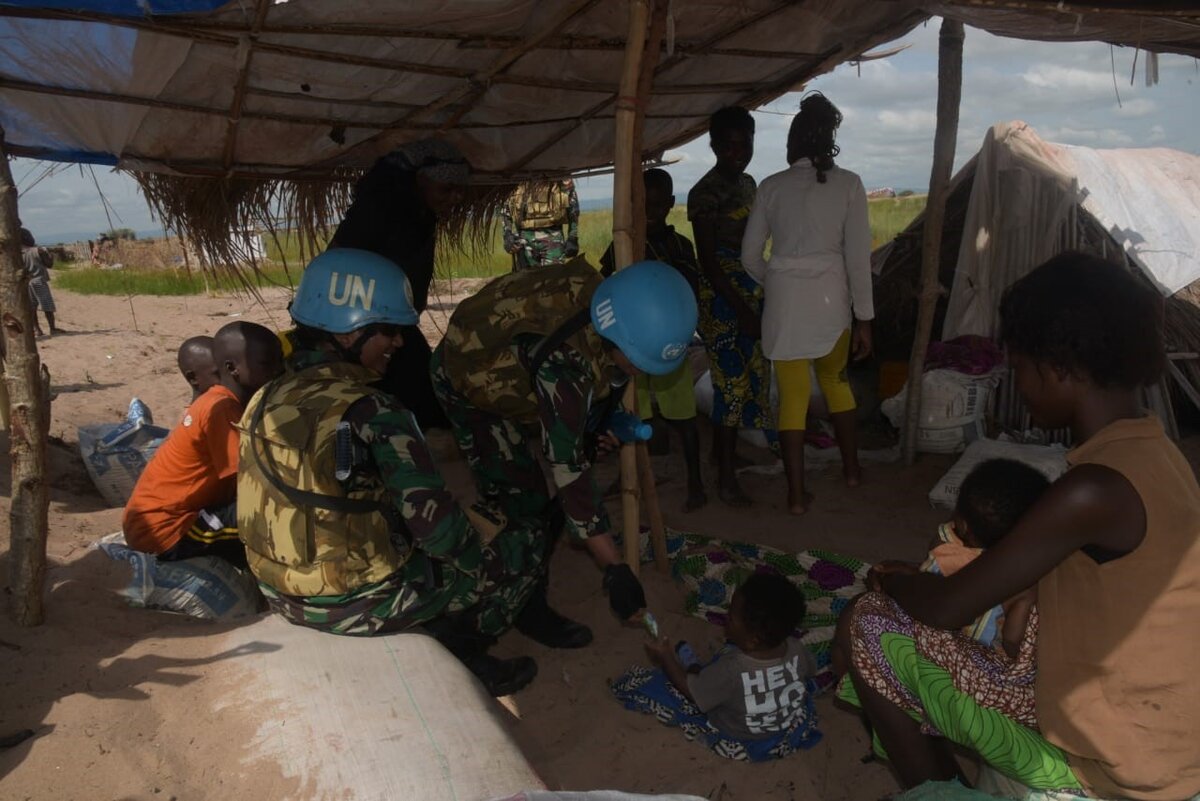
Captain Lila believes women peacekeepers serve as role models and reassure local women; their presence in the Mission generates a feeling of confidence in peacebuilding activities. She is experiencing this in the implementation of the ongoing disarmament, demobilization and reintegration process of the "Mai Mai" ex-combatants, in Tanganyika.
"Promoting women in Peacekeeping Missions is essential, because they play an important role in the prevention and management of conflicts, as well as in the consolidation of post-conflict peace" said Captain Lilia who also describes as highly enriching the cultural dimension offered by Peacekeeping Missions.
 UN
UN United Nations Peacekeeping
United Nations Peacekeeping




